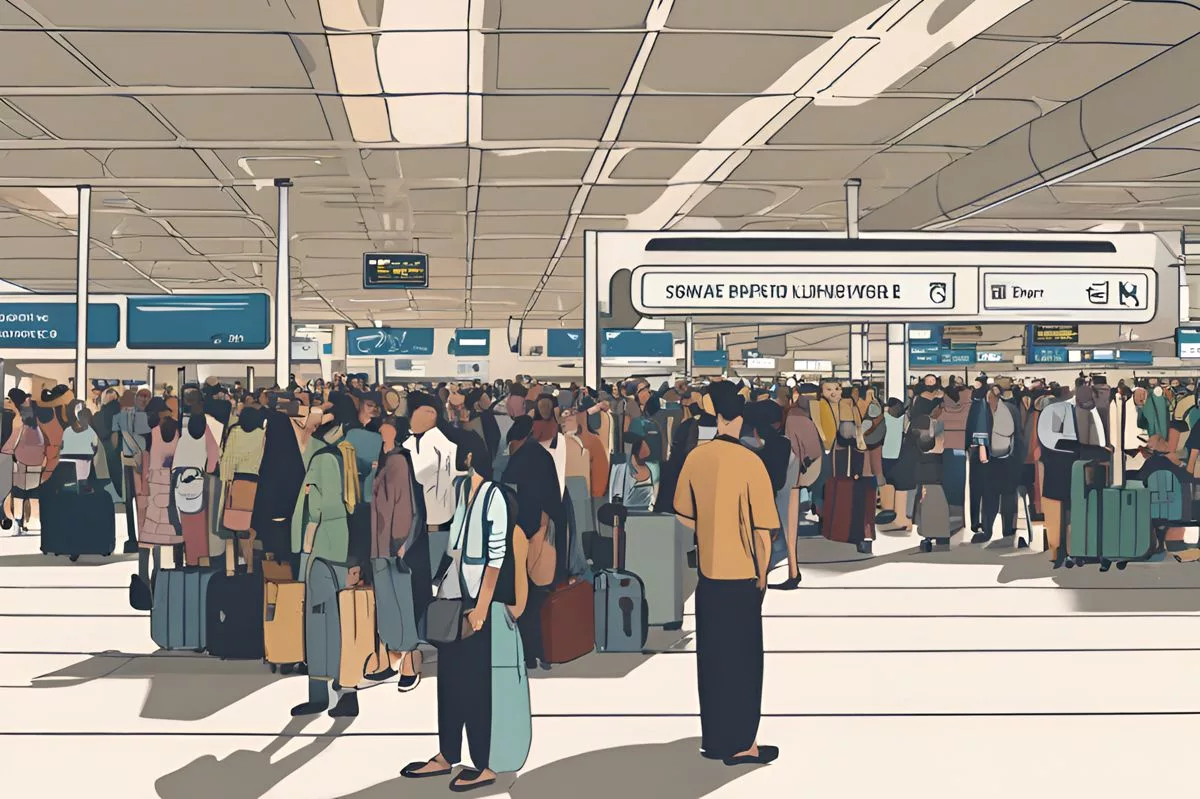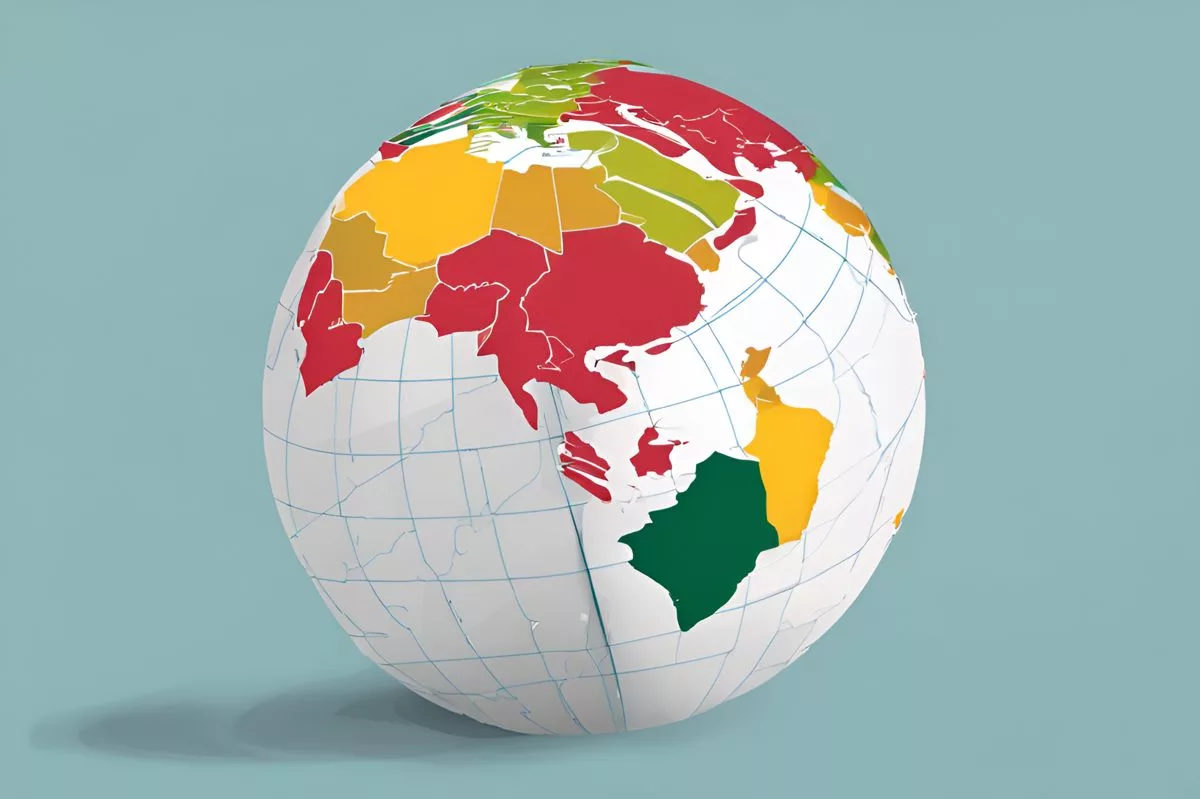South Africa’s Home Affairs Minister Leon Schreiber extended a concession for foreign nationals awaiting visa outcomes due to backlogs, citing its necessity as a safeguard for applicants and to attract international investment, tourism, and employment. However, the political party ATM opposed this decision, stating it undermines the interests of South African citizens and could lead to an influx of foreigners competing for scarce job opportunities. The Democratic Alliance supported the extension, believing it will reduce backlogs and promote economic growth.
Unsettling Developments Around South Africa’s Visa Concession Extension: What is the justification for the extension?
Home Affairs Minister Leon Schreiber extended the temporary concession for foreign nationals awaiting the outcomes of visa, waiver, or appeal applications due to backlogs. The extension serves as a safeguard for applicants and makes South Africa more appealing for international investment, tourism, and employment.
The African Transformation Movement (ATM), a political party in South Africa, recently voiced a strong objection to Home Affairs Minister Leon Schreiber’s decision to extend the temporary concession for foreign nationals awaiting the outcomes of visa, waiver, or appeal applications. Schreiber justified this move, asserting its necessity due to some visa applications being held up due to backlogs.
The Justification for the Extension
Schreiber explained the delay as unfortunate yet unavoidable. He emphasized that the extension was intended as a safeguard for applicants who are making important contributions to South Africa through their unique skills. In his view, this would prevent them from suffering negative consequences or being wrongly categorised as undesirable as they wait for their applications to be handled.
Schreiber’s department underscored the significance of this decision, stating it would make South Africa a more appealing location for international investment, tourism, and employment. Siya Qoza, the spokesperson for Home Affairs, asserted that this move represented a deliberate effort to revitalize the department, positioning it as a crucial economic catalyst.
New Regulations and Their Implications
Under the freshly implemented rules, those who have applied for a waiver and still have applications pending as of June 30 are granted a temporary extension until December 31. This timeline allows the Home Affairs department to process the applications while giving applicants the opportunity to both collect the outcomes and submit applications for the appropriate visas.
The new regulations also provide for individuals who choose to leave South Africa instead of waiting for their waiver application. These individuals are allowed to depart from a designated port of entry on or before December 31, with no fear of being labelled undesirable.
Opposition Concerns and Political Reactions
However, the ATM and its leader Vuyo Zungula expressed strong objections to the decision. Zungula articulated that Schreiber’s move showed a stark disregard for the wellbeing and economic future of South Africans. He contended that this new policy undermined the efforts of skilled local workers and paved the way for an influx of foreign nationals to compete for scarce job opportunities at a time when the nation is grappling with a rising unemployment rate.
Zungula also expressed worries about the repercussions of wealthy foreigners, particularly in areas like Cape Town, escalating property values and rendering housing increasingly unattainable for locals. He strongly urged Schreiber to retract the concession and prioritize the interests of South African citizens.
However, the Democratic Alliance (DA), another political party, expressed approval of Schreiber’s decision, with DA spokesperson Werner Horn praising Schreiber’s move as providing breathing room for the department to substantially reduce the backlog of over 145,000 visas accumulated during the previous administration.
A Hopeful Perspective
Horn conveyed their belief that Schreiber’s decision would bring a sense of certainty and alleviate the burden for foreigners waiting for their visa, waiver, and appeal applications’ outcome. He further elaborated that the current delays in the Home Affairs Department had reached a critical point, leading to confusion and annoyance among tourists and even fostering corruption.
Horn also conveyed his confidence that under Schreiber’s leadership, the department would execute plans to decrease the backlog and breathe new life into the struggling economy. Such revitalization would be achieved by luring skilled foreign nationals, fostering investments, promoting tourism, and creating jobs in the long run.
- What is the justification for the extension of the visa concession in South Africa?
-
Home Affairs Minister Leon Schreiber extended the concession due to backlogs, as a safeguard for applicants and to attract international investment, tourism, and employment.
-
What are the implications of the new regulations for visa applicants?
-
The new regulations allow for a temporary extension until December 31 for those who have applied for a waiver and still have applications pending as of June 30, and for individuals who choose to leave South Africa instead of waiting for their waiver application.
-
Why did the African Transformation Movement object to the extension?
-
The ATM leader Vuyo Zungula expressed concerns that the concession undermined the interests of South African citizens and could lead to an influx of foreigners competing for scarce job opportunities, and could escalate property values.
-
What is the Democratic Alliance’s stance on the extension?
-
The DA supported the extension, believing it will reduce backlogs and promote economic growth, luring skilled foreign nationals, fostering investments, promoting tourism, and creating jobs.
-
How does the Home Affairs department plan to address the backlog of visa applications?
-
The department plans to decrease the backlog and breathe new life into the struggling economy by executing plans to lure skilled foreign nationals, foster investments, promote tourism, and create jobs in the long run.
-
How does the extension benefit visa applicants?
- The extension provides breathing room for the department to substantially reduce the backlog of over 145,000 visas accumulated during the previous administration, bringing a sense of certainty and alleviating the burden for foreigners waiting for their visa, waiver, and appeal applications’ outcome.












